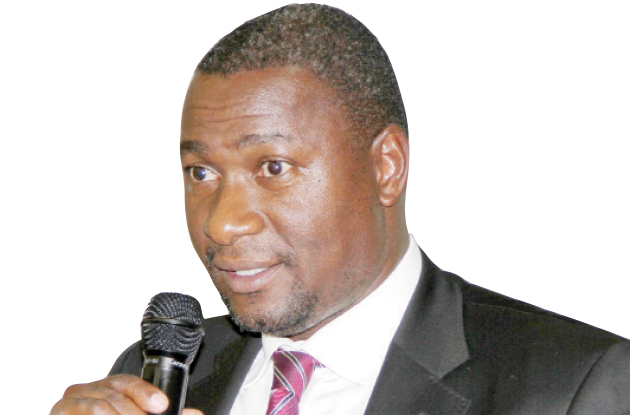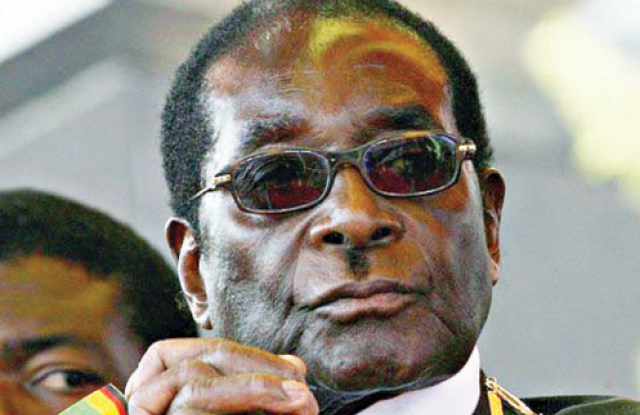Minister raps ‘rude’ Econet

Temba Dube Deputy News Editor
ECONET wireless Zimbabwe is grandstanding and trying to whip up public emotions against government policies by misinforming citizens about infrastructure sharing in the telecommunications sector, a Cabinet Minister said yesterday.Information Communication Technology, Postal and Courier Services Minister Supa Mandiwanzira said the mobile giant could be pursuing a hidden agenda as it had not approached government about the issue.
He said he was disappointed that Econet chose to talk about its disgruntlement through the Press.
The Minister challenged Econet to remove its equipment and that of their related company Liquid from all TelOne and ZETDC infrastructure which they already enjoy significant sharing if it was serious about its rejection of the infrastructure sharing arrangement. “If they do so within this time frame (by Friday), then the government of Zimbabwe will take their position to reject infrastructure sharing, seriously,” Mandiwanzira said.
Recently, the government suggested that mobile telecommunication providers should share infrastructure so that the different networks could use each other’s transmitters in areas where a network would not have coverage. The move, aimed at cutting costs for service providers and reducing prices for consumers, has been resisted by Econet which claims it is a rip-off.
Econet argues that it has the most developed infrastructure and other service providers, Telecel and NetOne would be benefiting from its investment.
In a story published in our sister paper, The Sunday Mail, Econet said it believes there is no plan to share infrastructure, but “compulsorily acquire” it’s base stations and sites, including fibre optic network.
Mandiwanzira, responding to Press adverts flighted by Econet and the Sunday Mail story, said: “We’re very concerned that Econet has taken the route of communicating their reservations on infrastructure sharing through the media instead of engaging directly with the Ministry of ICT, Postal and Courier Services”.
He said since his appointment in December, 2014, Econet had never requested to discuss this or any other issue they might have with regards Government policy pronouncements.
Mandiwanzira said the matter was particularly disappointing as he had not made it a secret his availability to any player in the sector who wishes to discuss any matter of relevance or importance to the sector.
“So I consider the pronouncement from Econet a very rude way of communicating with government. I can only conclude that there is a hidden agenda to whip up public sentiment against the government and its policies with Econet playing victim. This mischief is most unfortunate,” said the Minister.
Mandiwanzira said Infrastructure sharing was not an invention of the Zimbabwe government or a Supa Mandiwanzira concept.
He said telecommunications infrastructure sharing is global best practice done to rationalise investments in the telecommunications industry to avoid duplication or triplication of infrastructure as is the case in Zimbabwe.
“The key objective for sharing is to make services cheaper for consumers and save the country the unnecessary cost of infrastructure importation,” he explained.
Mandiwanzira said it is common cause that Zimbabweans are being over charged by cell phone companies both in terms of voice and data services, adding: “The only reason given by the same networks is that they’ve invested a lot of money in building infrastructure which includes base station towers, and deploying fibre links across the country and therefore they need to overcharge in order to recover the cost.”
He said his ministry was concerned that data charges being levied on Zimbabwean subscribers by most networks, especially Econet, were unjustifiable.
“The deployment of up to three mobile phone towers on a mountain by the three networks in the country – each one with its own generator, security guard, own imported steel etc, when one such tower can serve all, is environmentally unfriendly just as it’s economically unsound,” said Mandiwanzira.
He said Econet and other cellular network providers were passing the unnecessary costs on to Zimbabweans.
Mandiwanzira said government rejected “this daylight robbery of our people. Therefore no mobile network, no matter how big or arrogant, should be allowed to grandstand in the media by pretending to be the protector of consumers when it’s in fact extorting the consumers by its totally overpriced products,” he said.
Mandiwanzira said his ministry takes what Econet says seriously as the company is a big player in the market. He said the Posts and Telecommunications Regulatory Authority (Potraz), which early this year kick started the process of consulting industry players, including Econet, on a framework for infrastructure sharing, is proceeding with its work in earnest.
“Econet’s input in the process – brought through by British consultants it hired for the consultation process, will surely be taken into account,” said Mandiwanzira.
He said Econet was already sharing infrastructure with foreign networks like MTN who had their subscribers roaming in the country and said it was a mystery why it did not want to share with local service providers.
Over the weekend, without giving names, Econet alleged that other players had been intruding into its base station sites without permission “in preparation for the illegal grab of our base stations.”
The mobile giant has a history of aggressively fighting infrastructure and resource sharing.
Last year it clashed with NetOne and Telecel, refusing to let its EcoCash agents to conduct transactions for OneWallet and TeleCash customers.
The issue was resolved with the intervention of the central bank, which outlawed monopolising of agents.
Last year again, banks had a run-in with Econet after it refused them access to its Unstructured Supplementary Service Data (USSD) platform- a protocol used by GSM cellular telephones to communicate with the service provider’s computers.
In 2009, Government think-tank, the National Economic Consultative Forum (NECF) said it had observed that there is unnecessary duplication of network resources by the existing networks.
“This duplication of network resources increases set up costs thus hindering speedy network roll-out. Infrastructure sharing is being frustrated by limited co-operation and poor turnaround times among existing operators. Environmental aesthetics is also compromised as a result of the proliferation of towers,” said the NECF in a report.
It suggested the setting up of a regulatory framework and criteria for infrastructure sharing, based on an analysis of the competitive impact of infrastructure and in line with good regulatory goals.










Comments